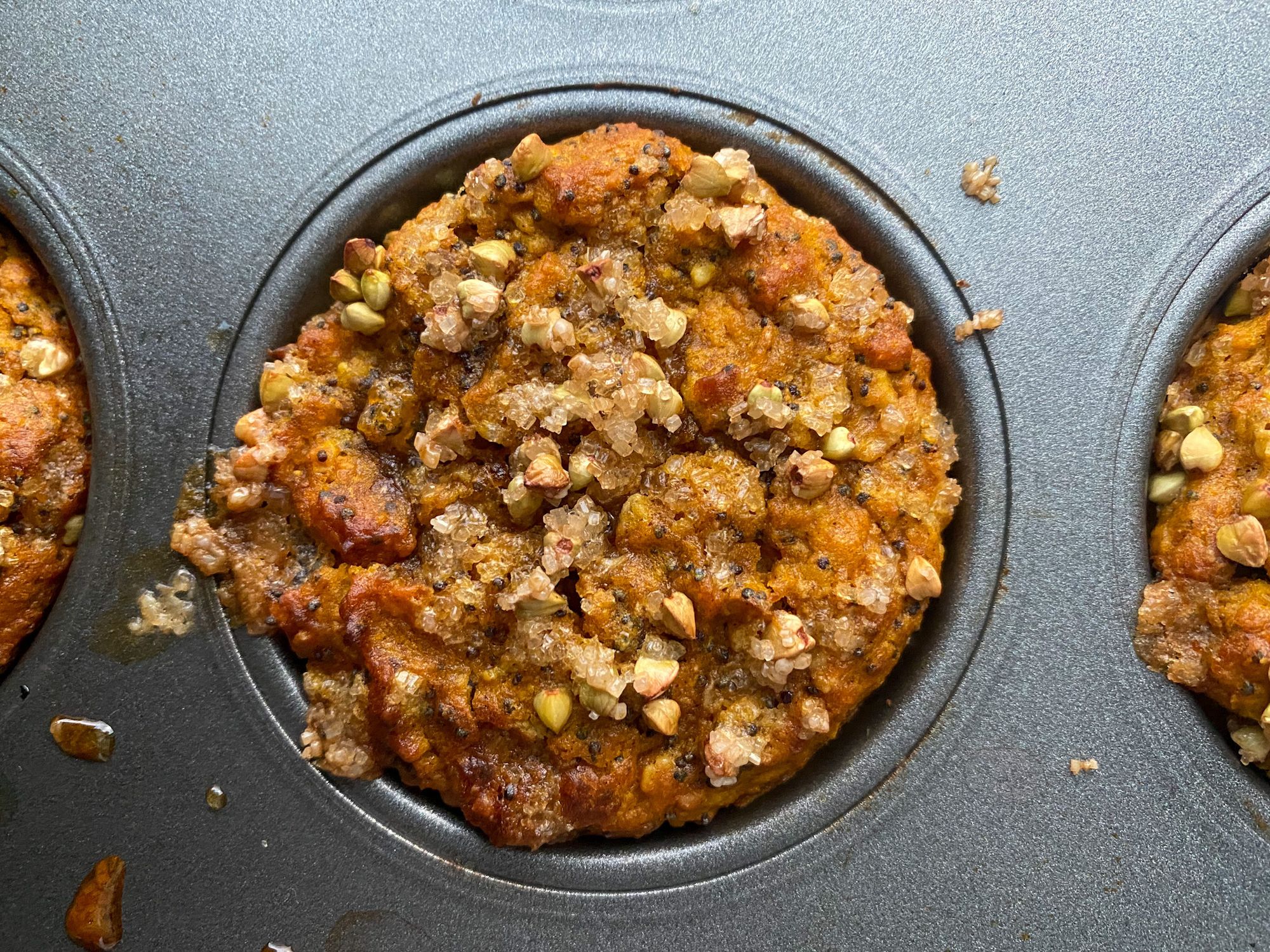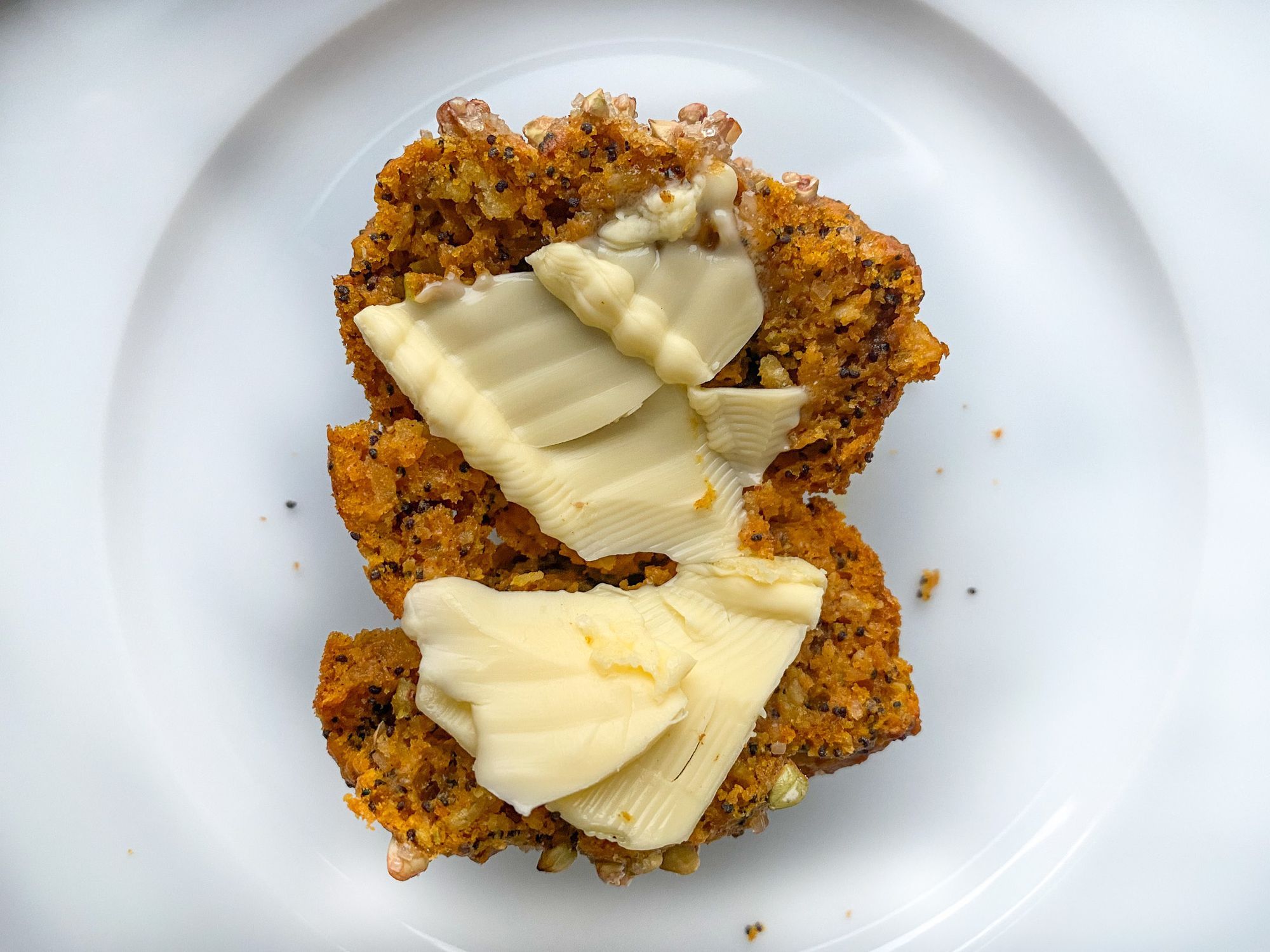
Pumpkin Everything, Everywhere, All At Once
As a Californian, fall in London is strange. I come from a land without seasons and therefore without a sense of time. For my whole life, I relied on something else to signal that fall had begun, which doesn't exist in London—rows and rows of canned pumpkin.
As a Californian, fall in London is strange. For one, it exists. I come from a land without seasons and therefore without a sense of time. In California, it could just as well be November or June. When you have no concept of time, you believe you have all of it. Ten years past college felt nearly the same as two years past—still going to the same bars with the same friends in the same neighbourhood eating the same tacos and drinking the same mid-grade whisky and feeling with utmost certainty that you will figure it out some day but that day isn't today.
It's my second year in London so obviously I know fall exists. Still, my California body shudders more than I imagine London bodies do, and as I sit enrobed in a makeshift Snuggie and sloth-shaped hot water bottle (yes I'm an Indian aunty), I wonder when this all happened. When did the berries stop tasting sweet and the sun stop perching so high overhead and the ice cream stop melting so fast? When did it stop being summer?
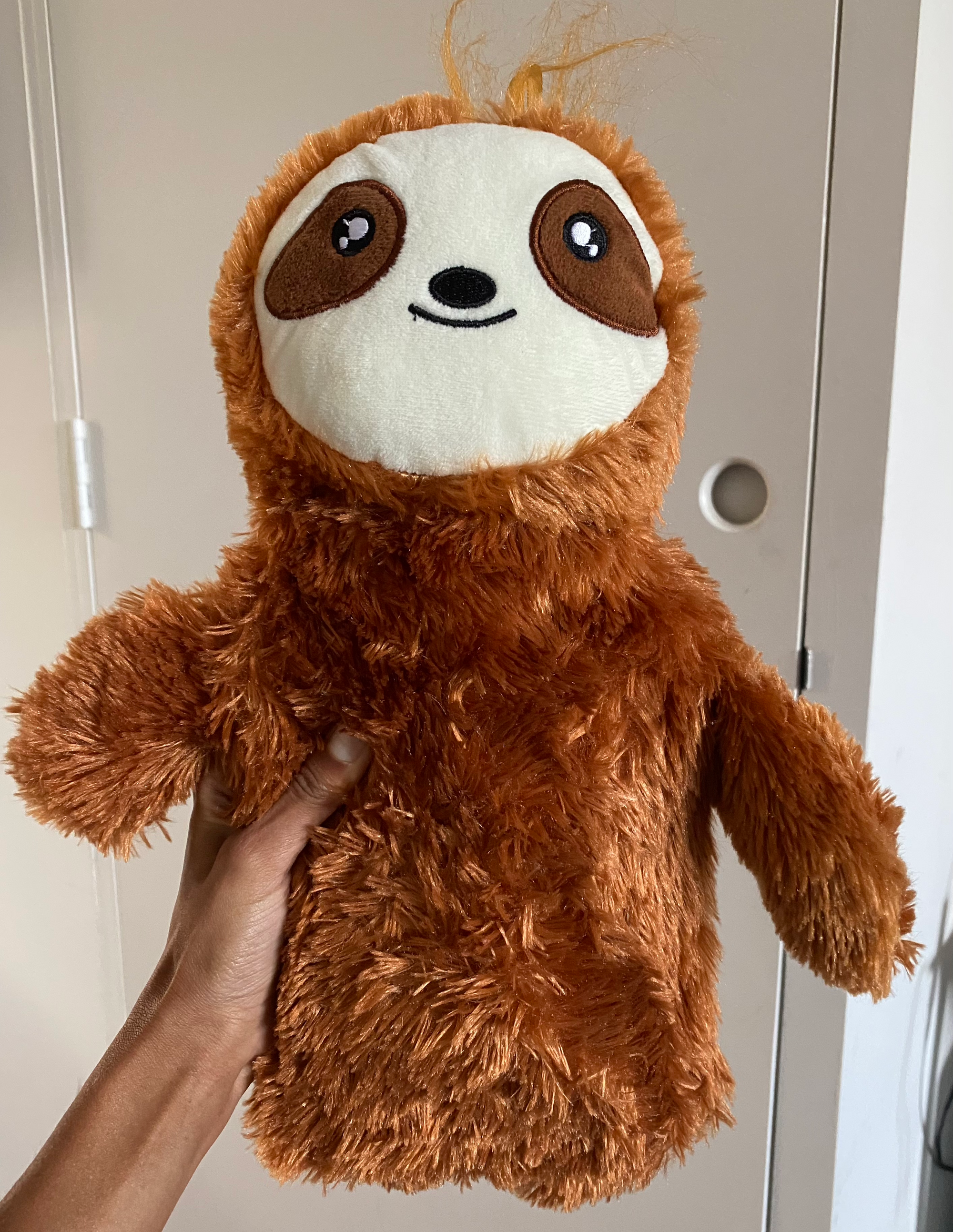
I know the answer. We left London for three weeks between September and October to get married, which is the time when summer transitions into fall. When we returned, London had shed its summer skin and swapped its airy blues and vibrant greens for autumn beiges and sleepy yellows. I was too late for a final summer hurrah; nature had declared it fall.
In London (and in most of the world), nature does plenty to alert us of fall—leaves begin to crackle like Rice Krispies in milk and the sun is as chilly as the inside of my fridge and made chillier by spontaneous sheets of wind. In California, we don't have any of those signals. So for my whole life, I relied on something else which I've now realised doesn't occur here. As basic at it is, to me, fall always began when every grocery store in every city began to stock rows and rows of canned pumpkin.
Those enticing orange cans were impossible to ignore. I'd walk into any American store and get smacked in the face harder than any gust of London wind ever did. But in that way that Americans think, I assumed that this was the case in all Western countries, because what else was there to do in November if not buy tons of cans and bake tons of pumpkin stuff?
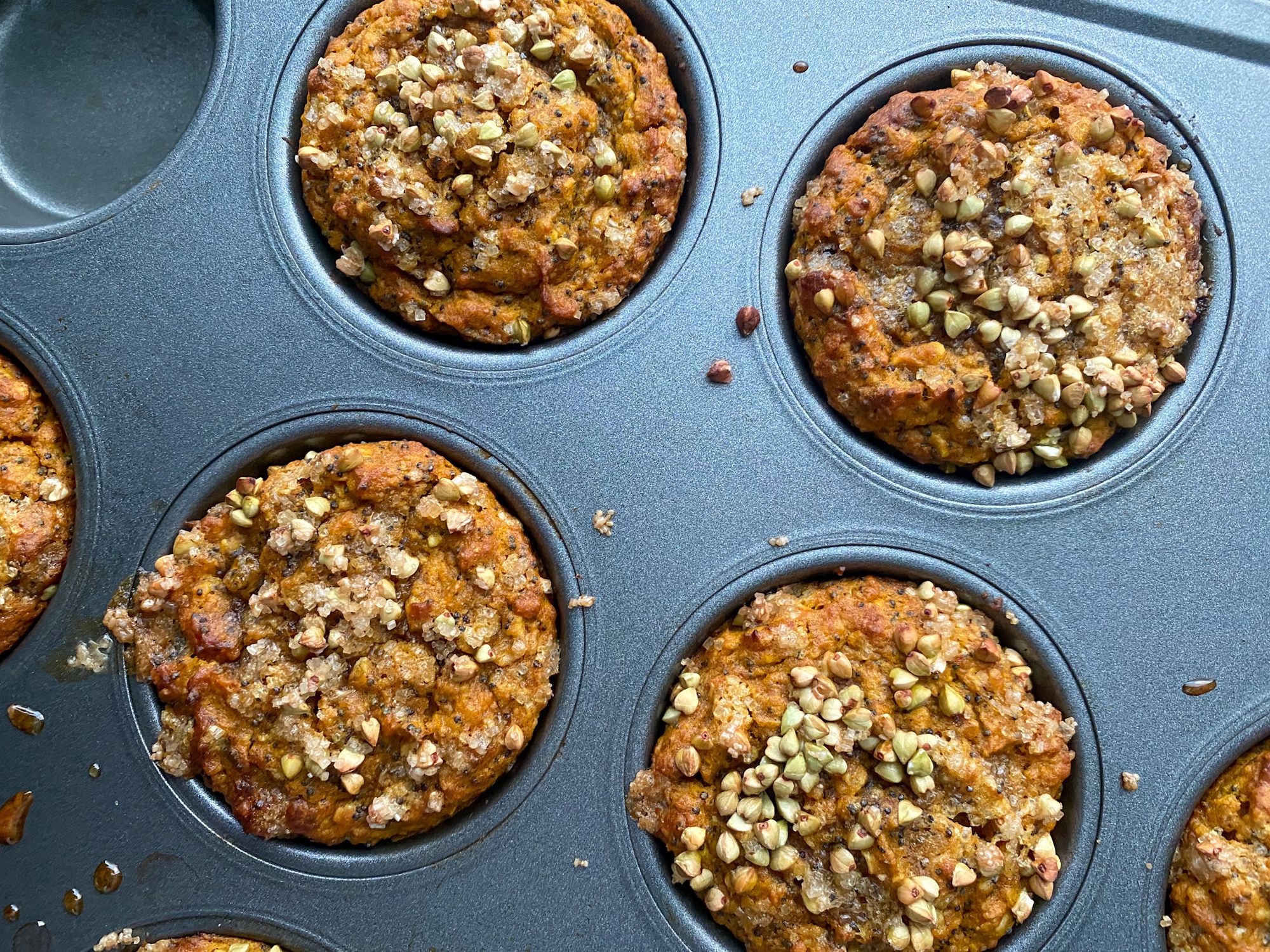
But of course, as much as America wants it to, the world doesn't operate according to it. In the UK, pumpkin is not a staple of fall, and most people who seek it out are Americans like me searching—assuming—that falls everywhere include stocking up on canned pumpkin; I know because I found several Reddit threads about it. The UK does produce nearly fifteen million pumpkins a year, but without a holiday like Thanksgiving, there isn't anything to anchor pumpkin as a keystone of fall. Here, pumpkin is used as food for livestock and for city dwellers, food for dogs. The cans that are available are branded with an American flag, possibly to remind shoppers that this is not the pride of British produce, and definitely to remind me that I am indeed much more American than I thought.
Pumpkin is native to North America, so on one hand, it might make sense that canned pumpkin continues to be everywhere today. It was grown, eaten, and used by Indigenous people for generations, and when Columbus swooped in, subsequent European colonialists did the same. But why peddle cans of it when there are more than two hundred varieties of fresh pumpkin and dozens of varieties of squash readily available? Ah yes, capitalism and nostalgia.
Demand for pumpkin sharply rose in the US after pumpkin pie entered the mainstream through some slick marketing in 1795 deeming it a must-have dessert for Thanksgiving. A century later, the first canning facility was built it and with it, canned pumpkin. Home cooks no longer had to spend long hours roasting and pureeing fresh squash, ushering in an era of convenience which is now a key facet of American culture.
As industralisation and economic opportunity lured people away from the farms and into cities, pumpkin and what it represented—hard work, family, community—faded. "'People became stressed about... moving into the office and off the farms, and [the pumpkin] starts to appear in poems and in paintings,'" says American Studies professor Cindy Ott. "'We're celebrating the nostalgia for this old fashioned, rural way of life, that no one ever really wanted to stay on, but everyone's always been romantic about.'"
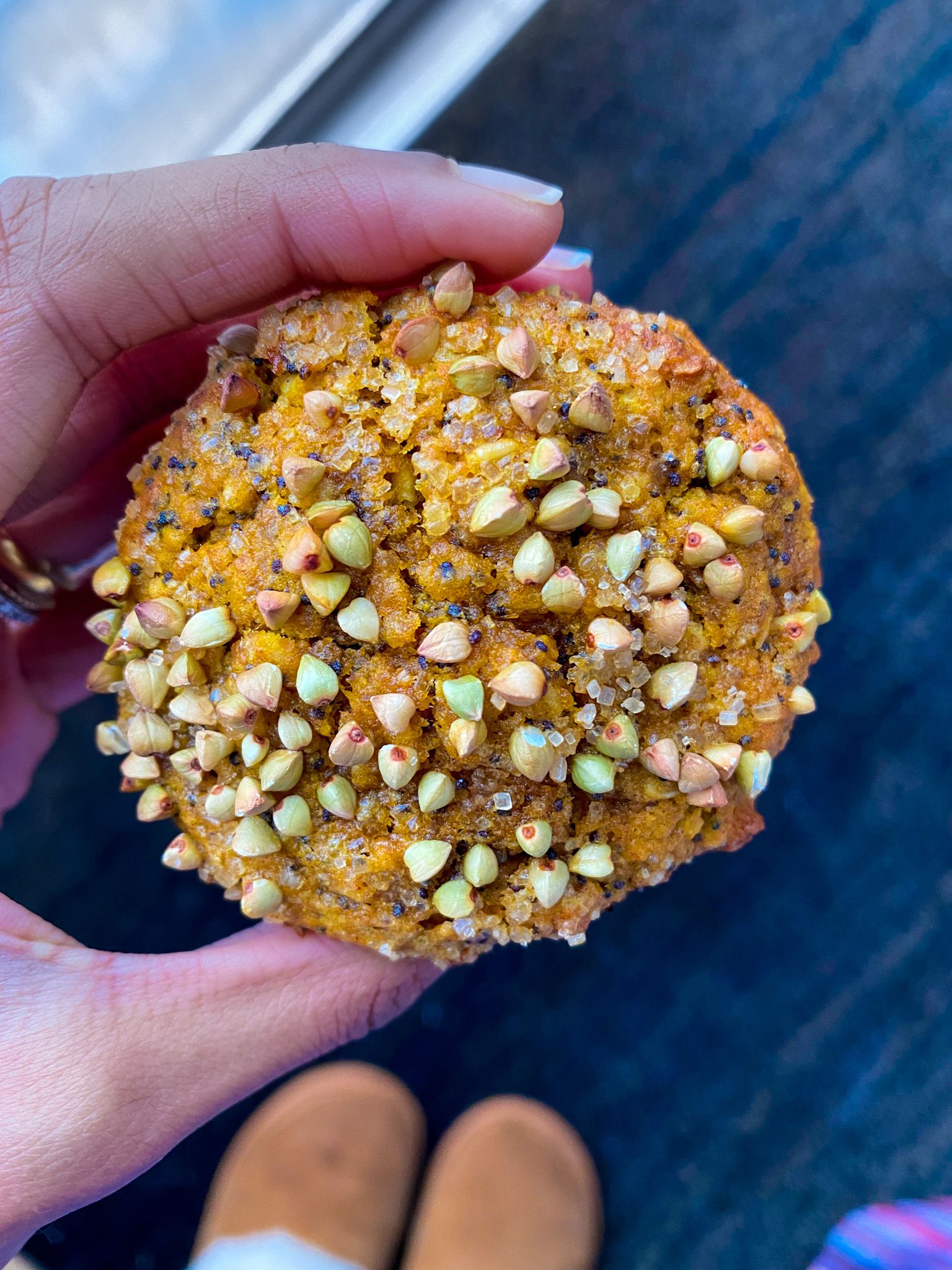
As someone who's lived her entire life in cities, I don't crave a rural life, but I do wish to rekindle the connection that pumpkin has provided me. When I think of pumpkin, I think of my mother working her second, sometimes third job at Starbucks and sneaking home pumpkin spice syrup to make us coffee-free lattes at home. I think about eating pumpkin scones (also from Starbucks) and wondering what the difference was between this and a biscuit (answer: not much). I think about when I made pumpkin pie for the first time, pleasing both my dad and, it seemed, all of America because pumpkin pie equaled assimilation. I think of my dad making pumpkin pie year after year, tweaking and perfecting his recipe and becoming another unsung home cook like so many parents are. I don't want to go back to those delicious but difficult days, but as we tend to do, I romanticise them as simpler times, as if simple means happy.
London isn't overflowing with canned pumpkin, nor does it stock pumpkin-flavored waffles, cookies, gnocchi, ice cream, yogurt, popcorn, or lotion (Trader Joe's is really wilding out). I did what Reddit said and bought my flag-branded cans on Amazon, succumbing to capitalism and the American need to have exactly what I want right now. As I settle into life in London, I'm sure at some point, pumpkin will no longer be my leading indicator of fall, and I will learn to observce and listen to nature instead; isn't that what rural life was all about anyways? And if I need to spend a few extra quid to secure canned memories, I'll do it for the sake of nostalgia and honestly, for the sake of pumpkin baked goods. I'm still basic after all.
Whole Wheat Pumpkin Poppyseed Muffins
This recipe uses half a can of pumpkin, which means you can use the other half for something else or you can make a boat-load of muffins and eat one everyday—we do the latter by reheating it in the air fryer and slathering on butter.
It's a one-bowl recipe with a few choice ingredients like whole wheat flour, oats, and poppyseeds to elevate the flavor so it's a bit more than a basic-ass pumpkin baked good. Buckwheat groats are optional but add a wonderful crunch. Grab a bag from where else, Amazon.
Sign up for a paid subscription to get the recipe.
Become a paying subscriber to get access to this and future recipes. Nearly all of my content is free, but developing recipes takes a long time and your support allows me to continue my work. Even if you're not much of a cook, subscribing supports my writing as well!
A paid subscription gets you:
- Full archive + all recipes
- Travel guides of where I eat and drink (monthly)
- My gratitude that you are supporting creative endeavours!
